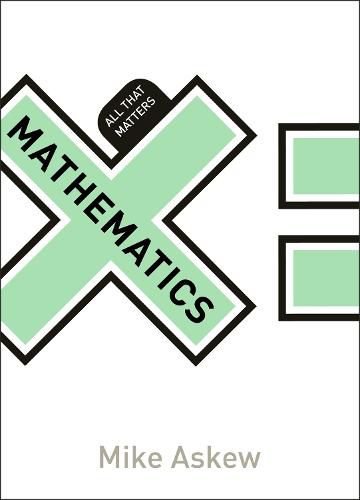Readings Newsletter
Become a Readings Member to make your shopping experience even easier.
Sign in or sign up for free!
You’re not far away from qualifying for FREE standard shipping within Australia
You’ve qualified for FREE standard shipping within Australia
The cart is loading…






Mathematics often gets a bad press. Describing someone as ‘calculating’ or ‘rational’ is hardly as flattering as being labelled ‘artistic’ or ‘creative’ and mathematicians in movies or novels are often portrayed as social misfits who rarely get the guy or girl. No wonder some folks say ‘oh I don’t care for mathematics, I was never any good at it’ with a wistful sense of pride.
Yet professional mathematicians talk of the subject differently. They look for elegant solutions to problems, revel in playing around with mathematical ideas and talk of the creative nature of mathematics. As the Russian mathematician Sophia Kovalevskaya said It is impossible to be a mathematician without being a poet in soul.
So why is there such a gap between the views of everyday folks and professional mathematicians? Part of the problem lies in how most of us were taught mathematics in school. The mathematics served up there is presented as a series of de-contextualised, abstract ideas, wrested from the human struggles and interactions that gave birth to the ideas. Through looking at some of the history of mathematics, psychological studies into how we come to know mathematics and key ideas in mathematics itself, the intent of this book is, if not to make the reader fall in love with mathematics, then at least to come to understand its nature a little better, and perhaps care a little more for it. In short, this book explores the human side of maths.
$9.00 standard shipping within Australia
FREE standard shipping within Australia for orders over $100.00
Express & International shipping calculated at checkout
Mathematics often gets a bad press. Describing someone as ‘calculating’ or ‘rational’ is hardly as flattering as being labelled ‘artistic’ or ‘creative’ and mathematicians in movies or novels are often portrayed as social misfits who rarely get the guy or girl. No wonder some folks say ‘oh I don’t care for mathematics, I was never any good at it’ with a wistful sense of pride.
Yet professional mathematicians talk of the subject differently. They look for elegant solutions to problems, revel in playing around with mathematical ideas and talk of the creative nature of mathematics. As the Russian mathematician Sophia Kovalevskaya said It is impossible to be a mathematician without being a poet in soul.
So why is there such a gap between the views of everyday folks and professional mathematicians? Part of the problem lies in how most of us were taught mathematics in school. The mathematics served up there is presented as a series of de-contextualised, abstract ideas, wrested from the human struggles and interactions that gave birth to the ideas. Through looking at some of the history of mathematics, psychological studies into how we come to know mathematics and key ideas in mathematics itself, the intent of this book is, if not to make the reader fall in love with mathematics, then at least to come to understand its nature a little better, and perhaps care a little more for it. In short, this book explores the human side of maths.